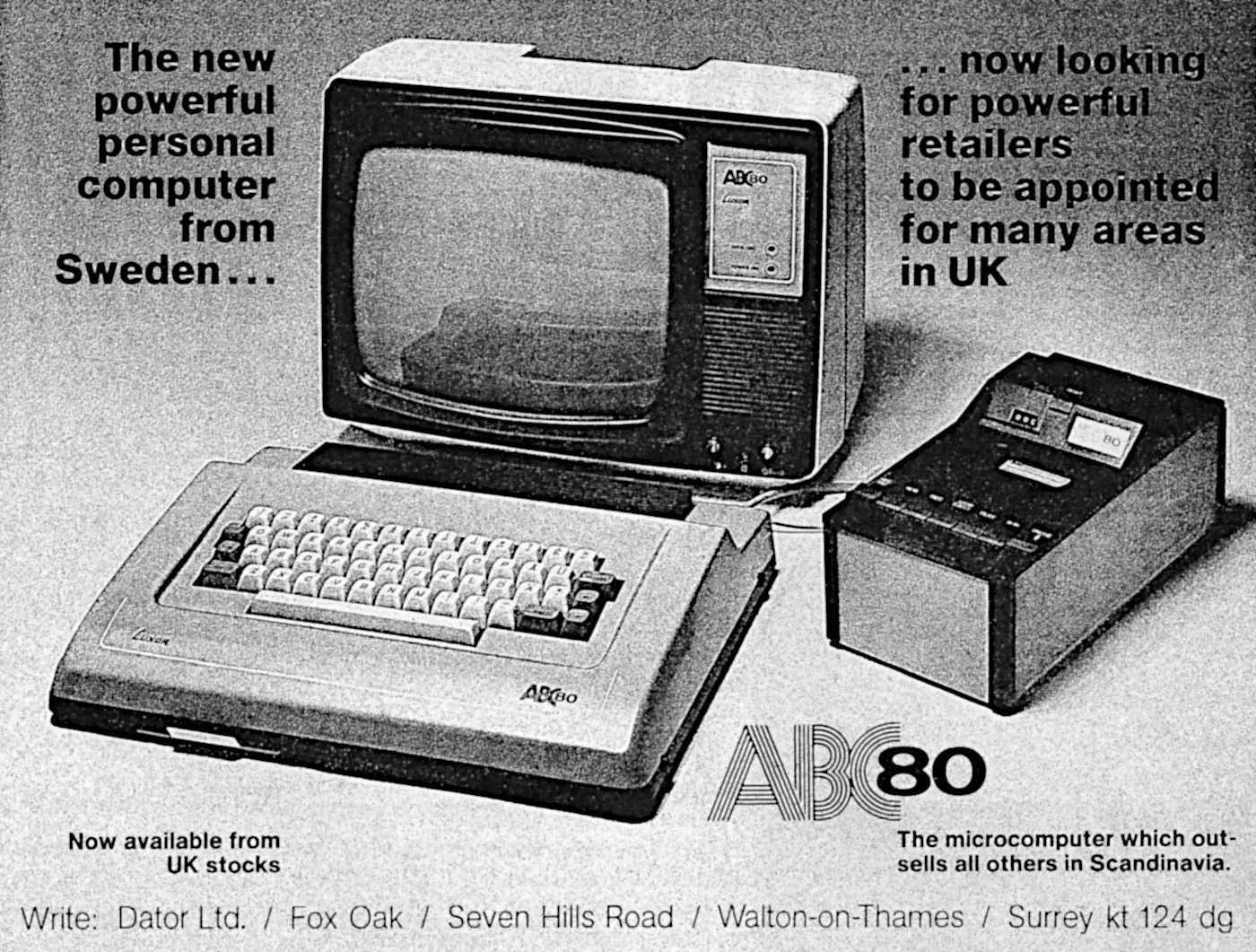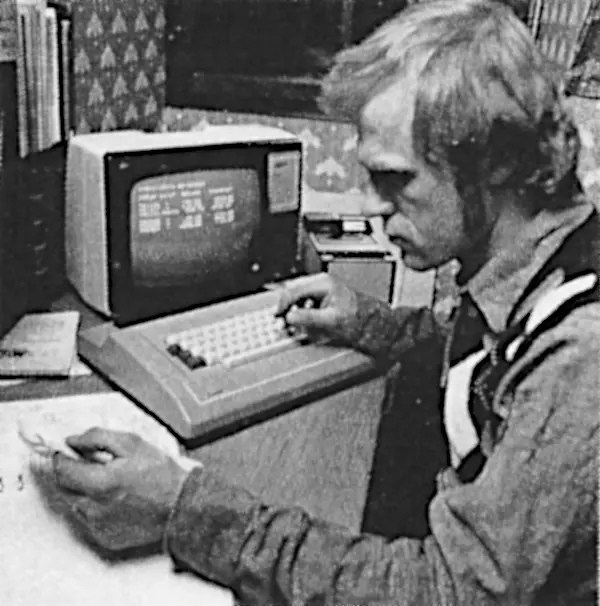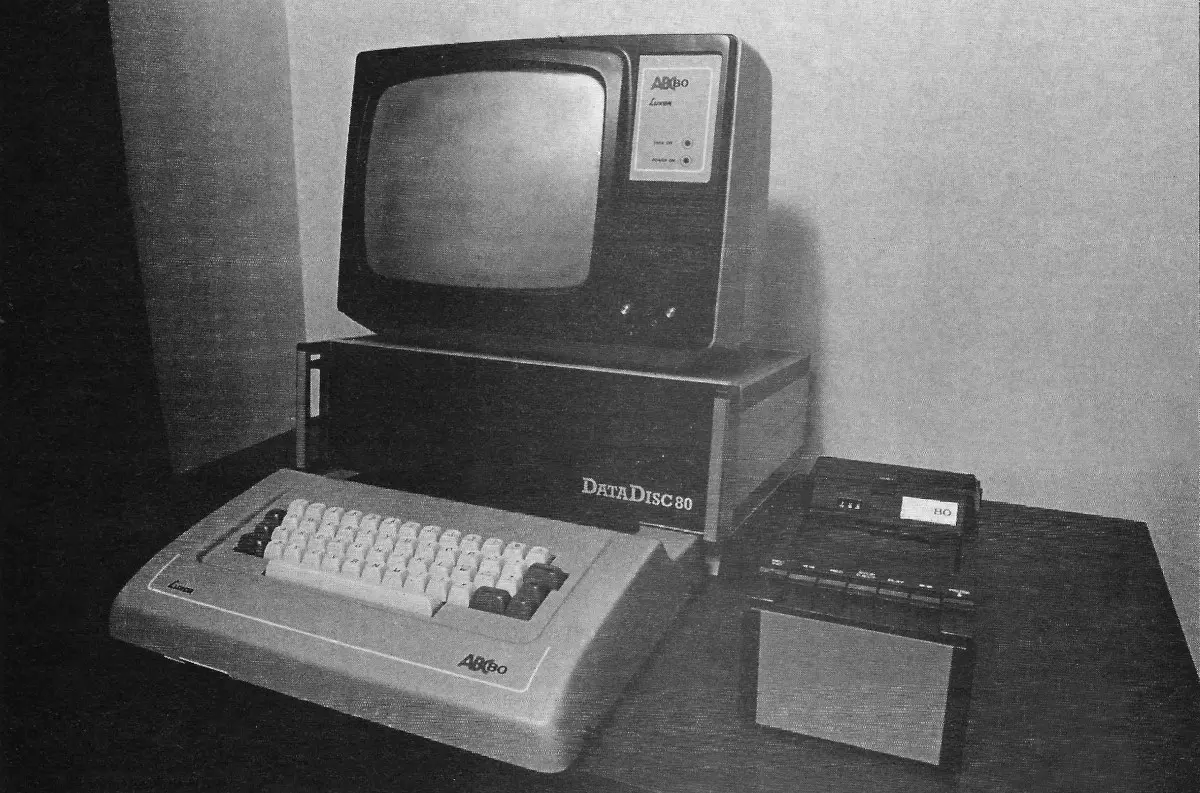Dataindustrier/Luxor Advert - June 1980
From Personal Computer World

ABC 80 - The new powerful personal computer from Sweden
It would be easy to think of the personal computer revolution as being a purely US and UK thing, although these were by far the largest and most active markets.
There were, however, home-grown computers being built elsewhere in Europe, such as the DAI Personal Computer from Belgium and this - the ABC 80 - built by Luxor, the Northern-European electrical chain and manufacturer of televisions and Hi-Fi. It was launched in Sweden in 1978.
It was designed by Dataindustrier AB, which was also manufacturer of the compatible Databoard 4680, for which there was already a large range of peripherals available, and comprised three units - a standard keyboard which also contained the computer, a 12" monochrome TV unit and a cassette.

The ABC 80 in action in Sweden, from Personal Computer World July 1979The computer ran a Z80A at 3.5MHz, came with 16K (and could support up to 40K) of RAM, had 16K ROM and ran its own proprietary "ABC" bus[1] as well as using its own BASIC, rather than the de-facto standard of Microsoft BASIC.
The ABC's BASIC was semi-compiled and so was particularly fast, comparing well against even Acorn's 6MHz Z80 second-processor unit[2].
It also used TI's Viewdata chip as its character generator, so was compatible with Prestel, Ceefax and other Viewdata services, and even came fitted with a standard European V24 phone plug.
It retailed for £790 + VAT, or around £5,750 in 2026, which put it up against the PET, Apple II, TRS-80, Sharp's MZ-80K and Exidy's Sorcerer. According to the advert - which looks to have been written in English as a second language - it was the most popular micro in Sweden.

The Luxor ABC 80 - as featured in Personal Computer World, January 1980
Sue Eisenbach of Personal Computer World concluded her review of the ABC 80 somewhat ambiguously, stating that it was near the top of the price range in its market but that there wasn't much English-language software available for it.
She continued that if vendor lock-in was ignored - it didn't use an industry-standard bus like the prevalent S-100 - the system did offer a wide range of add-on boards.
In fact the review[3] listed nineteen different boards, disc units or software packages, including a dual 8" floppy disc unit for a mere £3,180, or £20,100 in 2026.
Dataindustrier AB would eventually acquire the remains of Ohio Scientific, after the latter company had changed hands several times through the first half of the 1980s.
Date created: 12 August 2014
Last updated: 11 December 2024
Hint: use left and right cursor keys to navigate between adverts.
Sources
Text and otherwise-uncredited photos © nosher.net 2026. Dollar/GBP conversions, where used, assume $1.50 to £1. "Now" prices are calculated dynamically using average RPI per year.